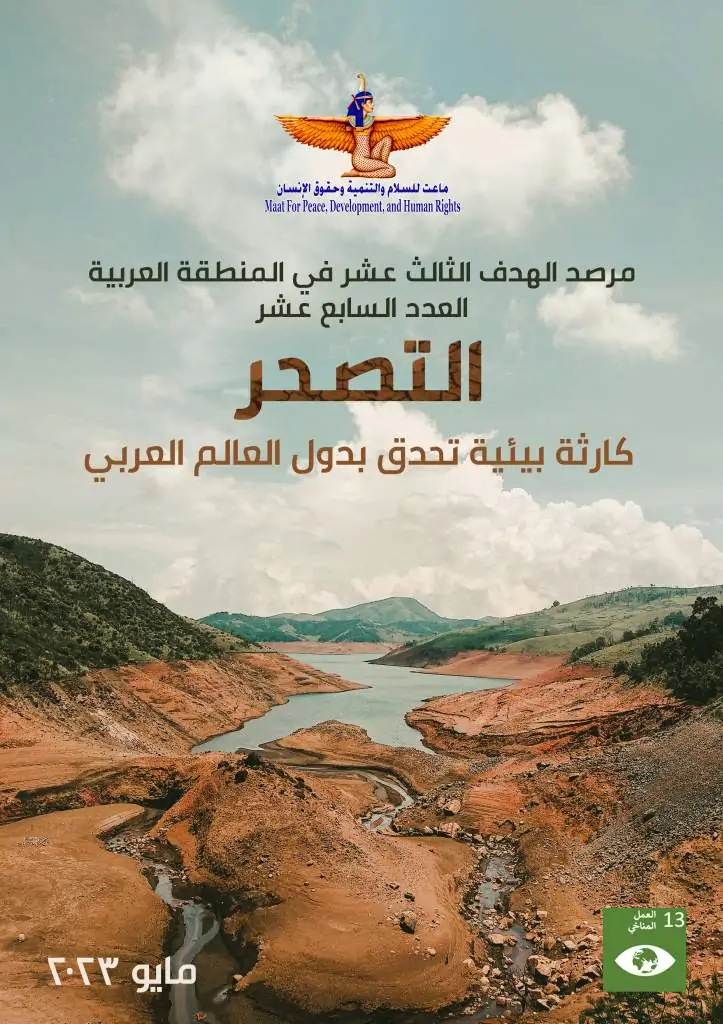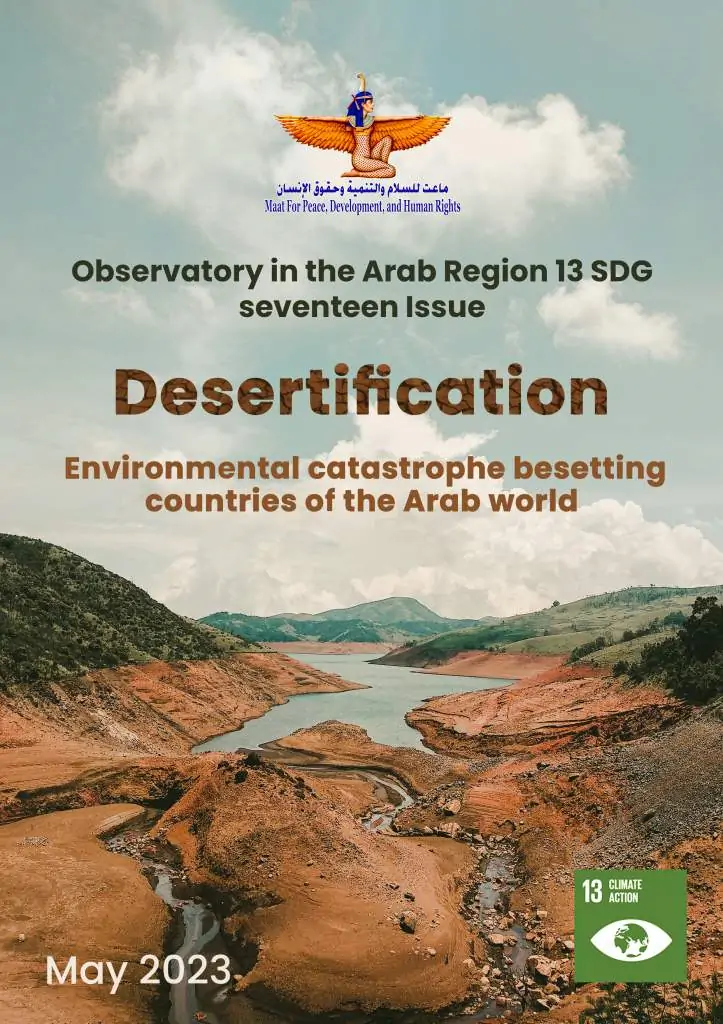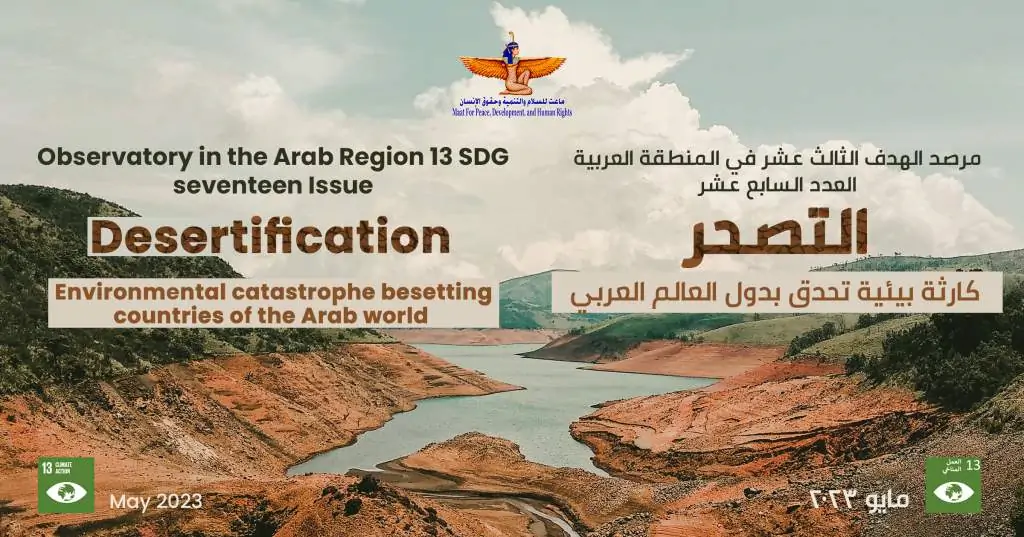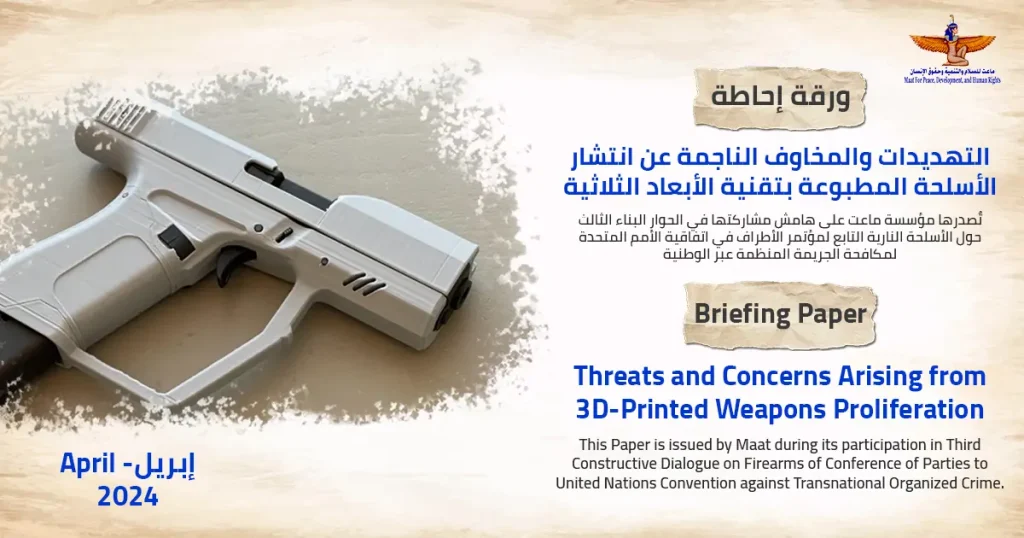In line with the World Day to Combat Desertification, Maat Reviews the Efforts of Arab Countries to Contain the Crisis
Okeil: We Call on Libya to Work Harder to Launch its National Climate Change Strategy
Al-Akkad: We Call on the Arab Ministries of the Environment to Exchange Experiences on Mechanisms to Combat Environmental Desertification
In June, the world celebrates the Day of Combating Desertification and Drought, which comes as a reminder of the huge dangers looming ahead of all countries of the world as well as the confronting mechanisms, in light of a series of successive crises that struck countries and blocked their efforts to keep pace with the rapid exacerbation of the desertification crisis, especially in the Arab region, which is deeply affected by desertification, given its geographical location.
Within the framework of its endeavors to protect human rights and promote sustainable societies in a way that preserves human life, Maat for Peace, Development and Human Rights releases its 17th issue of the SDG 13 Observatory in the Arab Region under the title " Desertification … Environmental catastrophe besetting countries of the Arab world" in order to track the good practices as well as the challenges that Arab countries face in achieving SDG13 of the 2030 Agenda for Sustainable Development.
May’s issue of the Observatory highlighted the efforts of the Arab countries in dealing with the desertification crisis, as meetings were held to follow up on environmental agreements concerned with desertification. Training workshops were also organized to boost the capabilities of those working in combating desertification and preserving environmental diversity, while other Arab countries supported other efforts to combat desertification, especially in areas suffering from security, economic and political obstacles.
The Observatory’s 17th issue focused on the issue of environmental desertification in the Arab region, with Libya being the country focus of the issue, which is one of the most prominent countries in the Arab region that is negatively affected by climate change, mainly by desertification. Libya comes at the top of countries badly affected by the negative repercussions of climate change, which was reflected in different and varied forms of risks and crises such as, desertification, water scarcity, and annual heat waves. 2022 witnessed the most severe dust storms.
Commenting on the SDG13 Observatory, Ayman Okeil; International human rights expert and Chairman of Maat for Peace, Development and Human Rights, pointed out that security and political instability have become common features in a number of Arab African countries, which poor presence in the field of climate action is noted, including Somalia, Mauritania, and Libya, despite being the most affected countries by climate change and environmental desertification.
The human rights expert recommended the Libyan Ministry of Environment and the Libyan National Subcommittee for the Climate Framework Agreement to accelerate work on the launch of the National Climate Change Strategy in a way that supports and organizes Libyan efforts to deal with the climate crisis. Moreover, he recommended the Ministries of Environment in Somalia and Yemen to establish local mechanisms for cooperation with United Nations bodies, led by the United Nations Development Program (UNDP), to support its implementation of a larger range of climate development projects in the international arena and to provide support for faltering agencies in light of current instability.
Iman Al-Akkad, a researcher at the Sustainable Development Unit at Maat, referred to a number of prominent regional efforts in combating environmental desertification during June. The League of Arab States followed up on the international environmental conventions concerned with desertification and biological diversity, at meeting No. 21 held by the Department of Environment and Meteorology Affairs and the Technical Secretariat of the Council of Arab Ministers Responsible for Environmental Affairs (CAMRE), during the period 14-17 May at the headquarters of the General Secretariat of the League.
In the context of exchanging experiences among the Arab countries that exert the least efforts in the framework of climate action and combating desertification, the researcher recommended the ministries of environment and climate change in the Arab region, under Target13.3 concerned with raising awareness about climate change, organizing a number of workshops and panel discussions among the Arab ministries to exchange experiences on the mechanisms of combating environmental desertification of the environment and to promote awareness.
It is noteworthy that the SDG 13 Observatory is a research periodical issued by Maat under the umbrella of the "Maat Platform for Climate Action", launched at the beginning of 2023. The Platform aspires to enhance the work of civil society in the field of climate action, by launching studies and periodicals aiming to raise levels of climate awareness, in addition to organizing a series of training workshops and activities concerned with discussing mechanisms for addressing and combating climate change at all levels; national, regional and international.

 |
 |











